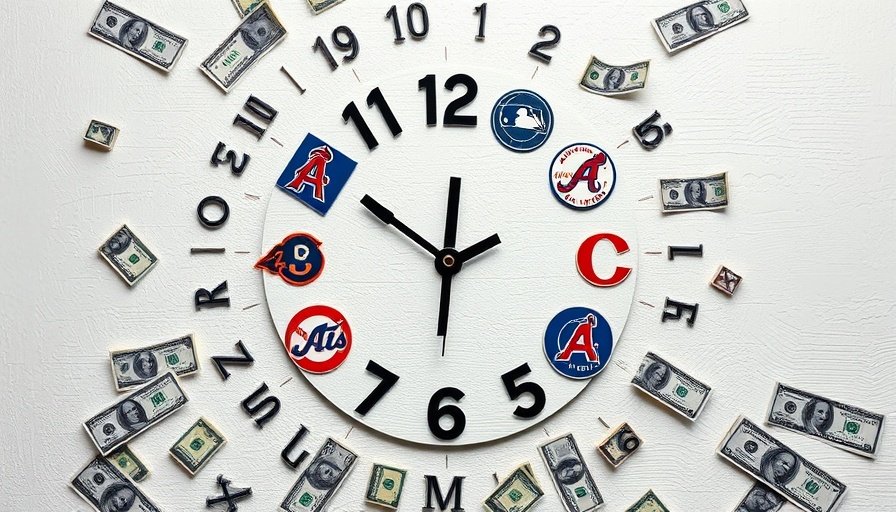
Understanding the MLB Trade Deadline: A Crucial Turning Point for Teams
As Major League Baseball's trade deadline approaches on July 31, teams around the league face pivotal decisions that could define their immediate futures. The landscape of competitive teams is changing rapidly, with dependable playoff contenders like the Braves, Rangers, and Blue Jays emerging, while others, such as the Cardinals and Royals, tread carefully in murky waters. These dynamics raise an essential question: Should certain teams sell off players and rebuild, or stay aggressive in their pursuit of postseason glory?
The Cardinals: A Case Study in Balance
The St. Louis Cardinals exemplify the struggles faced by franchises at this juncture. Currently sitting second in the NL Central, they are enjoying a surprising season buoyed by youthful talent like Brendan Donovan. Their roster has crafted an impressive batting average, ranking third in MLB, which sparks discussions about their potential for the playoffs.
Historical context looms large here; the Cardinals have a storied legacy of success and consistency. However, this season feels different. After consecutive underperforming years, the ownership and management face tough choices. Should they double down on this season's success or shift gears to prepare for future seasons? Trading away key players could provide crucial prospects for building a stronger foundational strategy, especially as they prepare to welcome new leadership in Chaim Bloom.
Are the Royals a Lost Cause or Just Treading Water?
The Kansas City Royals paint a different picture. Unlike the Cardinals, they’ve experienced a lackluster campaign, prompting speculation about whether it's time to sell off veterans to stockpile prospects. With a focus on long-term rebuilding, the Royals have been seen as more likely to embrace a “seller” mentality. However, any successful organization needs direction, and Kansas City’s management must avoid the pitfalls of committing to a down year without a clear roadmap for rebirth.
The Psychological Toll of Trade Decisions
In the emotional atmosphere of professional sports, players and fans alike can feel anxious about changes within their teams. The psychological burden of trades can affect team chemistry and performance on the field. Fans from St. Louis and Kansas City may experience a mix of hope and trepidation as they wait to see which players, if any, will be parting ways. This is where communication from management is critical to ensure that players remain motivated and unified.
What Would the Loss of Star Players Mean?
For teams like the Cardinals and Royals, losing star players could signal a shift in team identity. What happens when a fan-favorite player is traded to another team? Would that drastically impact the morale of the locker room, or galvanize the remaining players to strive harder? When building a competitive team, these are profound factors to consider, and the costs of keeping or trading a beloved player may extend beyond the field into community loyalty and support.
Future Predictions: The Postseason Landscape
While the trade deadline is a marker of current season strategies, it also shapes narratives for futures yet unknown. Teams who aim to stay competitive should look not just at present needs, but also at how their moves will influence future player markets. The outcomes of the upcoming trades may dictate the allegiances fans form with new players and how well they mesh with existing stars. Will the added talent catalyze a playoff run, or will it sow discontent?
Conclusion: A Call to Comprehend Change
The upcoming MLB trade deadline is not just an operational pivot for organizations; it's a moment that embodies the hopes and anxieties of players and their fans. Understanding the weight of decisions made at this juncture is crucial not only for the franchises making these choices but also for the communities that rally behind them.
As we stand on the brink of the trade deadline, it's an opportune moment for fans, analysts, and players alike to contemplate the impact of these moves, whether they seek to bolster a postseason chase or reshape their teams for the future. So, what do you think? Should your favorite team buy, sell, or hold? The discussions—and decisions—are just heating up!
 Add Row
Add Row  Add
Add 




Write A Comment